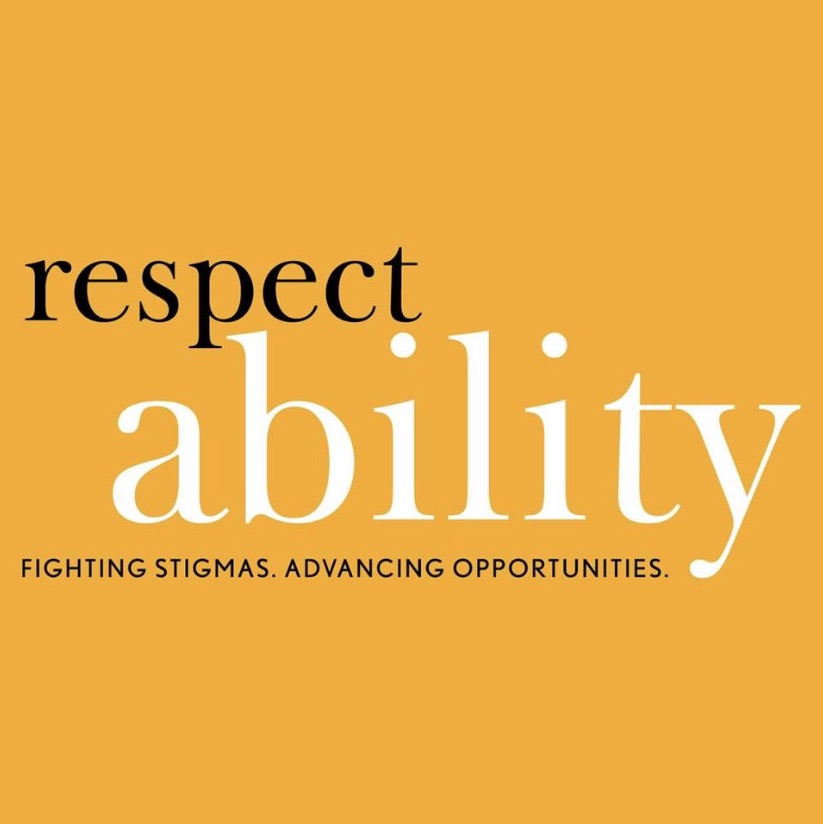 Screenshot from Facebook.
Screenshot from Facebook. Question: Which group of people is the largest minority (roughly 20 percent) in the United States but usually is left out of current discussions about diversity and inclusion in the entertainment industry?
Answer: Children, teens and adults with disabilities.
According to the Gay & Lesbian Alliance Against Defamation (GLAAD), less than 2 percent of scripted television characters in 2017 were portrayed as people with disabilities, and actors without disabilities played more than 95 percent of them — a trend called “ableism,” meaning discrimination in favor of people without disabilities.
RespectAbility, a national disability advocacy nonprofit based in Maryland, is working to change that storyline with its new “Hollywood Disability Toolkit: The RespectAbility Guide to Inclusion in the Entertainment Industry,” funded by a grant from the California Endowment.
The toolkit is designed to help entertainment professionals do a better job in disability inclusion across all platforms to “ensure more accurate, positive portrayals of people with disabilities in film and television,” said RespectAbility’s president, Jennifer Laszlo Mizrahi. “When it comes to disability inclusion, people often simply don’t know that they don’t know. As a result, they are afraid they will make a mistake. … By creating this guide, we hope to take away the fear factor from disability inclusion. We want to make it easy.”
“When it comes to disability inclusion, people often simply don’t know that they don’t know.” — Jennifer Laszlo Mizrahi
At the Toolkit launch event, held at the offices of Bunim-Murray, reality TV pioneer Jonathan Murray, a RespectAbility board member, said: “Opening the inclusion umbrella for America’s largest minority — the 1 in 5 Americans with a disability — is the right thing to do as well as the economically smart thing, given that the disability market is valued at more than $1 trillion.”
The free, 47-page toolkit, which is available online, covers such areas as “Best Practices,” highlighting the ABC family sitcom “Speechless,” which has the role of J.J., the son with cerebral palsy, played by Micah Fowler, who has cerebral palsy. Another section, “Etiquette: Interacting With People With Disabilities,” informs readers that a mobility device such as a wheelchair is part of a person’s personal space and shouldn’t be moved without permission. It also encourages people to treat adults with disabilities as adults, and not use baby talk in conversation with them.
A section about the landmark Americans With Disabilities Act (ADA) provides definitions and guidance in following the law, and a reminder that in the ADA “disability is a legal term rather than a medical one.” Practical accessibility tips are included, such as keeping floors free of potential tripping hazards so individuals with visual disabilities and those using walkers or wheelchairs can move around more easily and find a place to sit.
The bulk of the toolkit consists of specific disabilities FAQs, lists of national organizations and examples of actors and artists with those disabilities. The guide covers 13 categories of disabilities such as attention-deficit/hyperactivity disorder (ADHD), obsessive-compulsive disorder (OCD), autism spectrum disorder (ASD), blindness-vision loss, Down syndrome and little people/dwarfism.
In the section about “Mobility Impairments Requiring the Use of a Wheelchair,” violinist Itzhak Perlman, who has polio, states: “I always say separate your abilities from your disabilities. You know, if I could play the violin, I don’t have to play it standing up. I can play it sitting down.”
Elaine Hall, founder and executive director of The Miracle Project, said she recently coached eight teenagers and young adults with autism on the set of the Netflix comedy series “Atypical,” whose main character is a high school student with autism. The eight are current participants or alumni of her theater program for children and teens of all abilities. “They were able to be on that set for eight to 10 hours, taking direction and being flexible with last-minute script changes. The crew was in tears, seeing what was possible.”
The toolkit is online at www.respectability.org/hollywood-inclusion.
Michelle K. Wolf is a special needs parent activist and nonprofit professional. She is the founding executive director of the Jewish Los Angeles Special Needs Trust. Visit her Jews and Special Needs blog at jewishjournal.com/jews_and_special_needs.





















 More news and opinions than at a Shabbat dinner, right in your inbox.
More news and opinions than at a Shabbat dinner, right in your inbox.